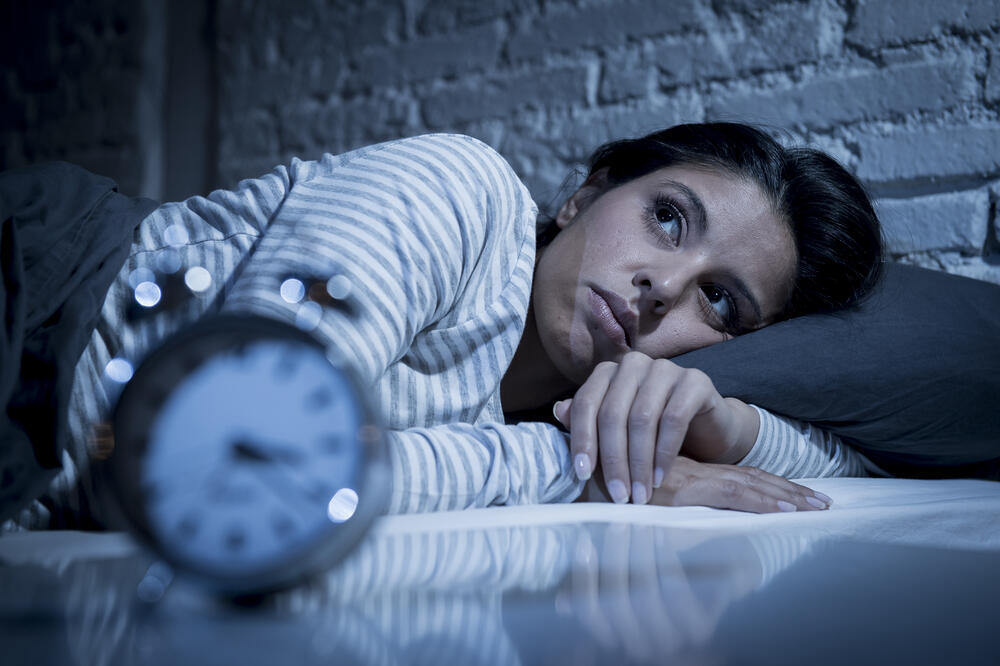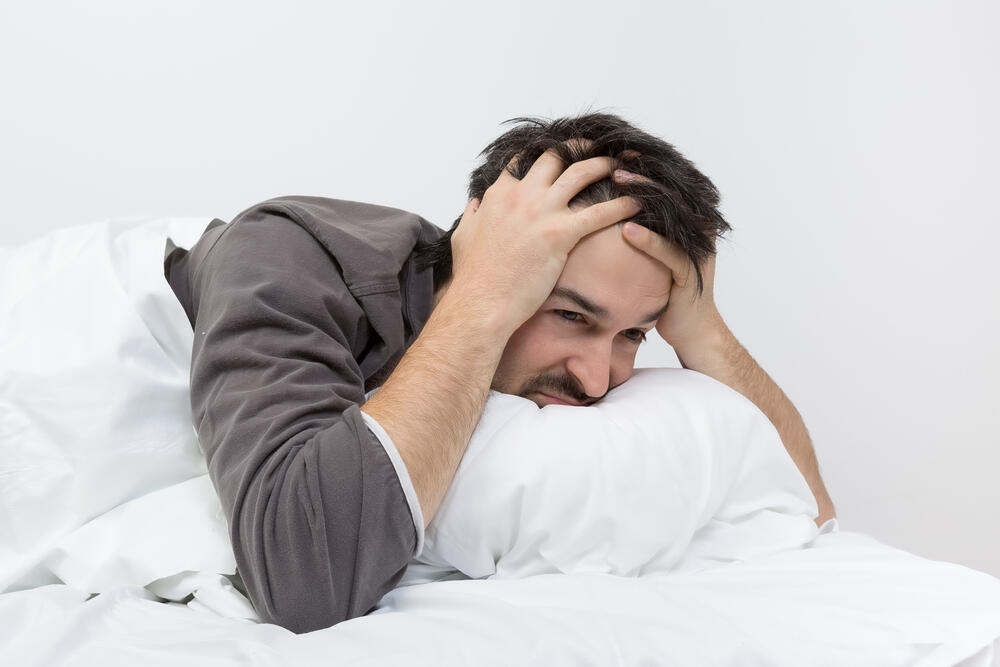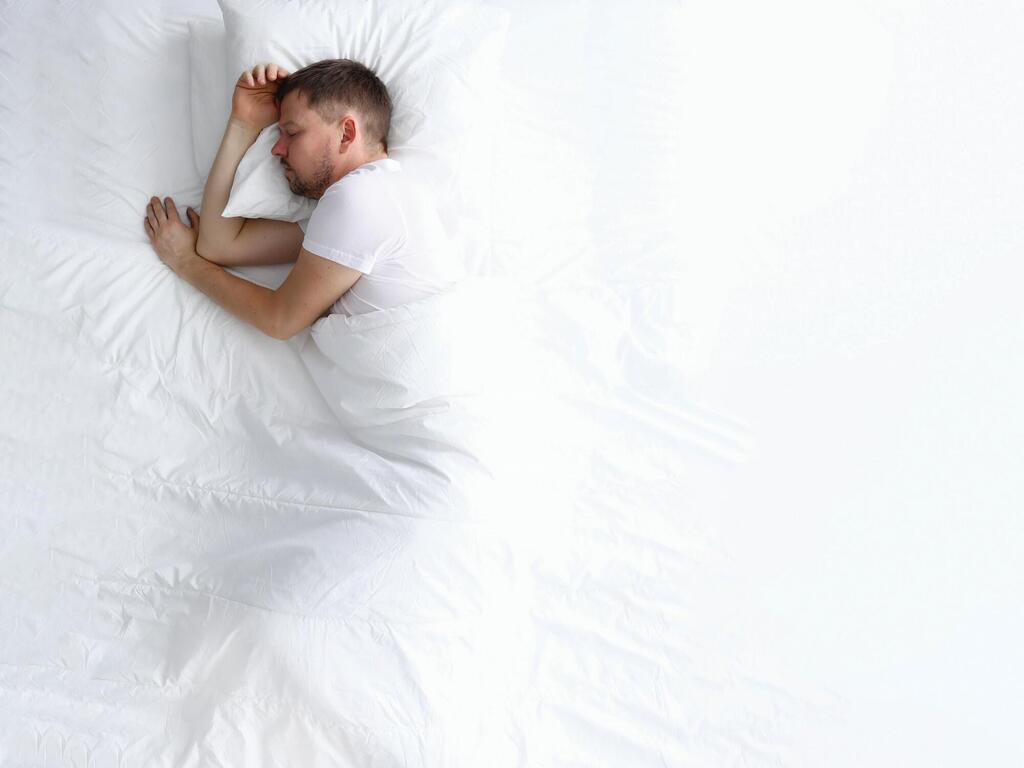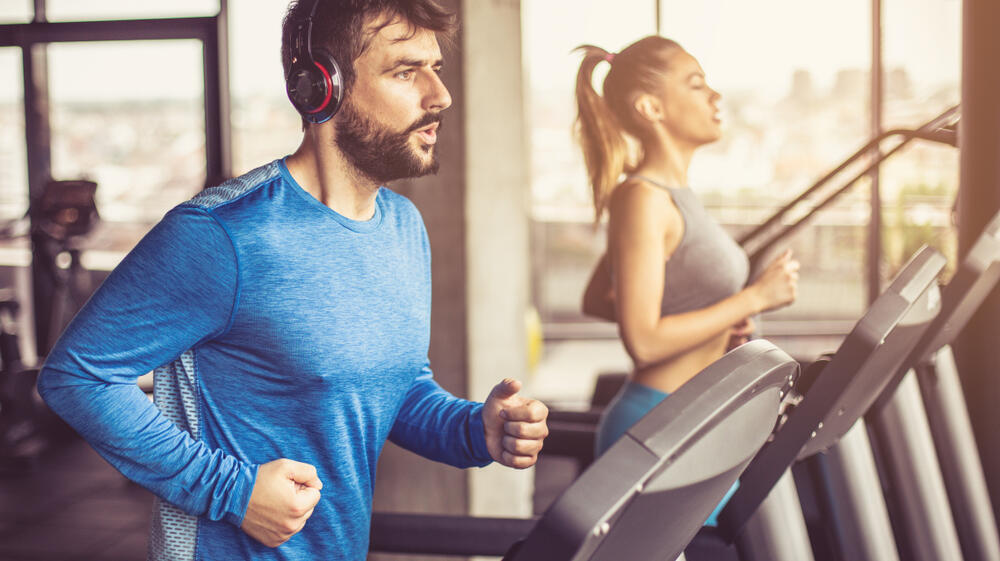The existential threat, immense loss of human life,and relentless horror stories, coupled with uncertainty, hinder daily functioning and also adversely affect sleep. What can be done? We asked Dr. Dana Florentin, a family medicine expert from Clalit Health Services.
More stories:
Is there a link between the extent of exposure to the news and its impact on sleep quality?
It's important to manage the information and content we are exposed to. Limited exposure to the news a few times a day gives a sense of control and helps us function better. If the television at home is on 24/7 or if one continuously watches distressing war videos, it only heightens anxiety, leading to a vicious cycle of addiction that ultimately harms us.
Proper resource management can aid in better sleep
In challenging times, routine serves as an anchor and promotes better sleep, so it's essential to maintain it. The current situation drains much of our energy, leaving us with little to spare. Hence, it's wise to surround ourselves with supportive people and a positive environment. Especially now, it's crucial to engage in enjoyable activities that recharge our energy.
Why is it important to leave the house?
While the mood is exceptionally heavy, most people are working from home, and there might be little desire to go out. However, getting out of the house is vital for maintaining health. Staying indoors can be draining and might exacerbate feelings of depression and anxiety, which in turn can cause or worsen sleep disorders.
Can physical activity help?
Physical activity enhances mood, helps relieve stress, tires the body and improves sleep quality. Moreover, it's medically and physically recommended. It's advisable to maintain a routine that includes regular physical activity, preferably daily, and if possible, in a social or group setting.
How to maintain proper sleep hygiene?
Adhere to a consistent bedtime routine, avoid screens an hour before sleep, jot down all worries and tasks for the next day to clear your mind, use the bed only for sleeping (not for work or watching videos), and most importantly - if you can't fall asleep within 15 minutes, get up from bed and return only when you feel tired again.
Napping during the day can disrupt nighttime sleep, so it's best to eliminate it from the schedule. While alcohol might help you fall asleep, it interferes with sleep quality, so it's better avoided. Coffee, of course, is a stimulant and should ideally be consumed only up until the early afternoon.
Can a proper diet improve sleep, and if so, what should you focus on?
Magnesium - Relaxes muscles, calms, and aids in better sleep. Magnesium can be found in pumpkin seeds, Brazil nuts, cashews, tahini, almonds, white beans, walnuts, chickpeas, green leaves, whole wheat, quinoa and bananas.
Tryptophan - An amino acid that increases the levels of melatonin and serotonin in the brain. It's found in oats, dates, sweet potatoes, avocados, peanut butter, cheeses, tofu, chocolate, eggs, fish and turkey.
Melatonin - The sleep-inducing hormone that rises following exposure to natural darkness and is best maintained with minimal exposure to artificial light at night. It is also found in cherries, potatoes, almonds, turkey, kiwi, oats, bananas, dairy products and sunflower seeds.
Vitamin D - Produced by exposure to sunlight and can also be found in eggs, salmon and mushrooms.
How can you organize your bedroom to create a foundation for better sleep?
A comfortable bed and a dark, cozy room are the foundation for good natural sleep. It's especially recommended to maintain consistent and unchanging conditions in the bedroom, such as covering the window with curtains or closing the shutters, ensuring that sunlight doesn't penetrate in the morning and making sure the bedroom is quiet.
Before going to bed, it's advisable to turn off electronic devices like TVs, computers and other gadgets that emit blue light. Additionally, conceal lights that cannot be turned off. Starting from two to three hours before sleep, it's also recommended to dim the lights throughout the house. Reducing light intensity signals the brain to start releasing the sleep-inducing hormone melatonin.
It's also a good idea to set aside any work, arguments or complex decisions, as it takes time to "switch off" the emotions and daily mental noise in the brain.
Is there importance to a consistent sleep schedule?
It's recommended to go to sleep and wake up at approximately the same times every day, despite stressful situations. This routine establishes a healthy sleep-wake cycle for the brain and body, facilitating quick sleep onset and deep sleep throughout the night.
If you’re having trouble sleeping, there’s a plethora of over-the-counter medicines that can help you better catch your Zs. In more extreme cases, consult your family doctor for sleep pills.
How and when to exercise to improve sleep quality
Revital Koren, a physical activity expert at Clalit Health Services, provides insights into the relationship between physical activity and sleep.
Can evening exercise enhance sleep quality and when should it be done?
Physical activity greatly enhances our quality of life and overall well-being. It aids in improving mood and also promotes better, more restful sleep. However, it is recommended to finish exercising a few hours before bedtime. The release of adrenaline and the rise in body temperature, which occur during physical activity, might disrupt nighttime sleep.
Engaging in physical activity at least three times a week not only significantly improves sleep quality but also various health indicators. It's essential to remember that it may be a process that takes several weeks, but patience pays off. Regular physical activity over time will significantly enhance sleep quality.
Which types of exercises can help improve sleep?
People who engage in aerobic activities (like walking, cycling, and swimming) have been found to sleep for longer durations compared to those who partake in strength and resistance training (like weightlifting and Pilates). The type of exercise also matters: for instance, cycling has been identified as being more beneficial for improving sleep quality compared to other aerobic activities.
The reason for this is that during aerobic activity, our body temperature rises. To regulate it efficiently afterward, the body undergoes a rapid cooling of all systems. This can subsequently enhance our ability to fall asleep quicker. This effect is similar to the impact of a warm, relaxing bath on the human body — a rise in temperature followed by rapid cooling accelerates the sleep process.
The recommendation is to perform aerobic activities (such as walking, running, cycling, dancing, swimming, and more) in the early evening for 30-60 minutes at a moderate intensity. Intense physical activities should be done about two to four hours before bedtime to ensure that sleep quality isn't compromised.
UNITED HATZALAH EFFORTS AND HEROIC VOLUNTEERS IN TIMES OF CRISIS








